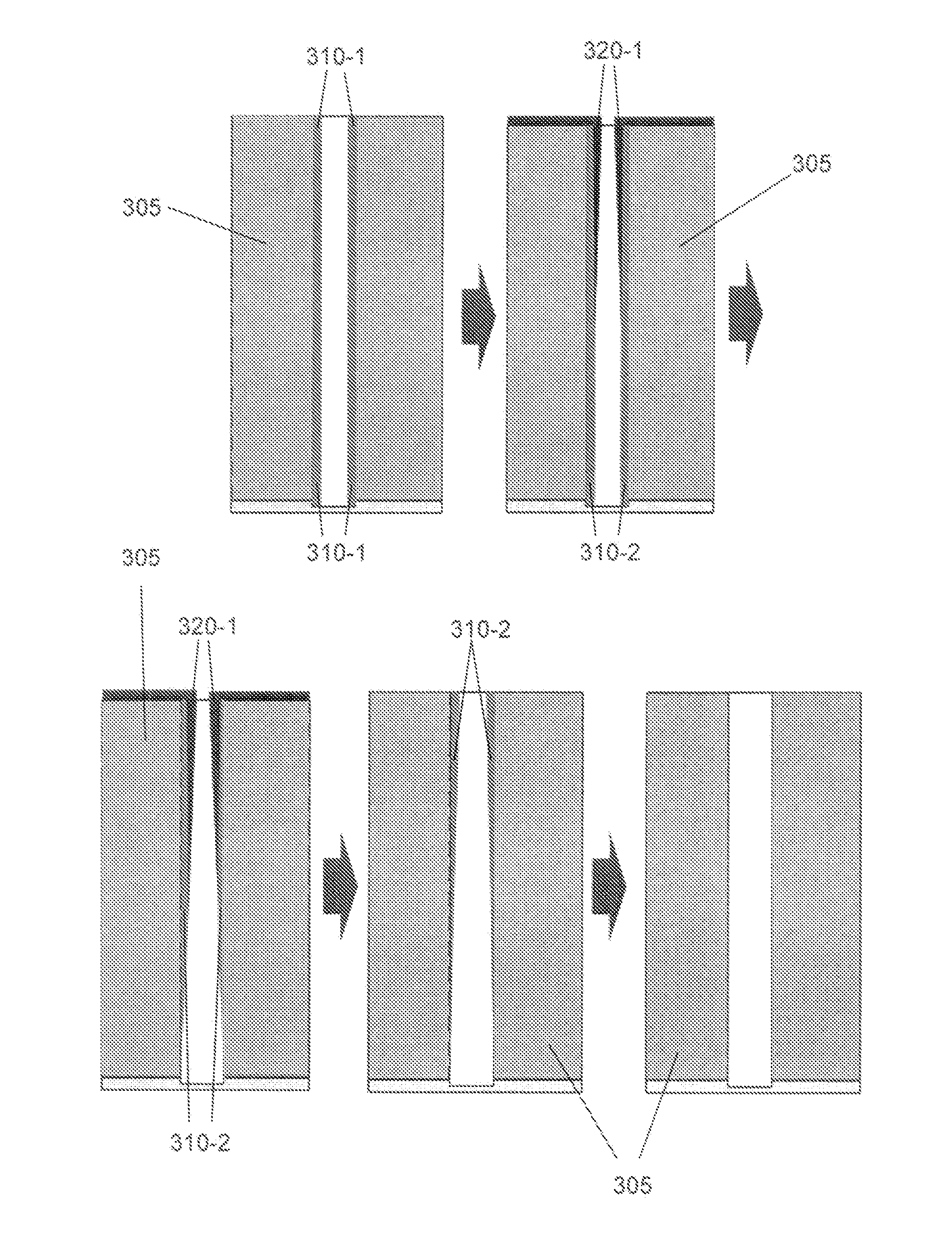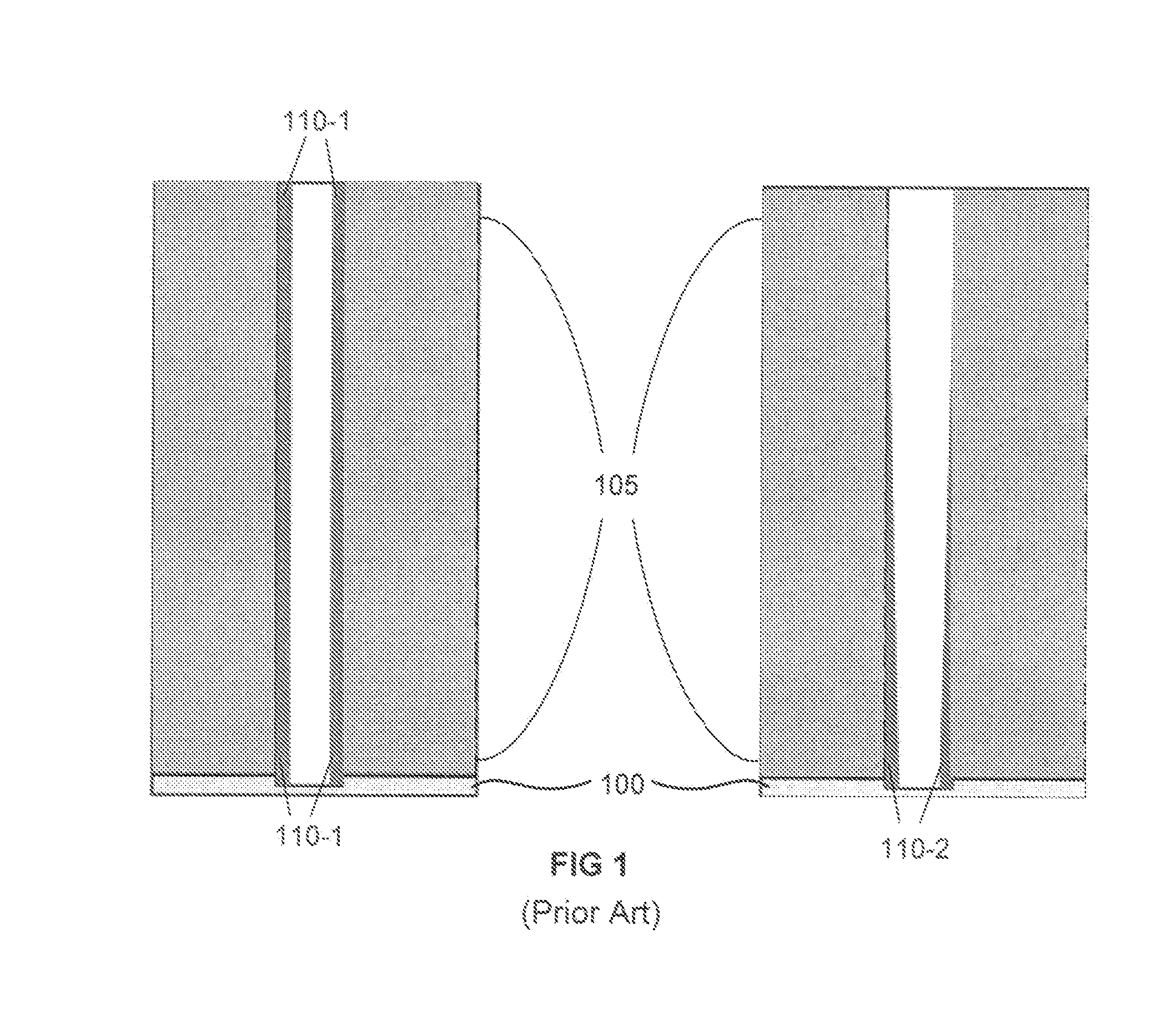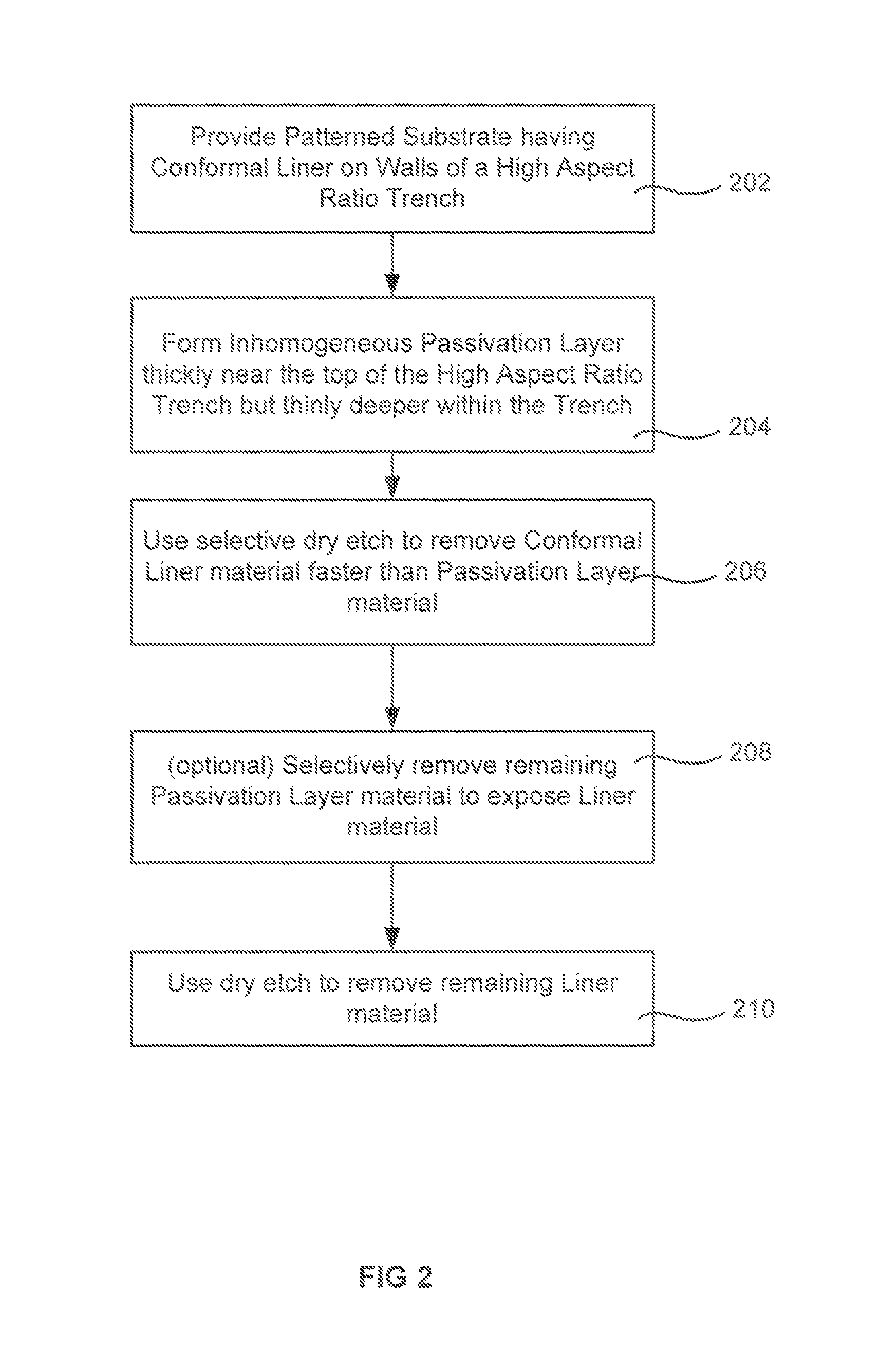Dry etch process
a technology of dry etching and process, which is applied in the direction of electrical equipment, basic electric elements, electric discharge tubes, etc., can solve the problems of less dry etching processes that can evenly and selectively remove metals
- Summary
- Abstract
- Description
- Claims
- Application Information
AI Technical Summary
Benefits of technology
Problems solved by technology
Method used
Image
Examples
Embodiment Construction
[0016]A method for conformal dry etch of a liner material in a high aspect ratio trench is achieved by depositing or forming an inhomogeneous passivation layer which is thicker near the opening of a trench but thinner deep within the trench. The methods described herein use a selective etch following formation of the inhomogeneous passivation layer. The selective etch etches liner material faster than the passivation material. The inhomogeneous passivation layer suppresses the etch rate of the selective etch near the top of the trench (where it would otherwise be fastest) and gives the etch a head start deeper in the trench (where it would otherwise be slowest). This method may also find utility in removing bulk material uniformly from within a trench.
[0017]During gas phase etch processes, etchant precursors have been found to lose some effectiveness progressively as they diffuse deeper within a high aspect ratio trench. This results from the increased number of collisions which occ...
PUM
 Login to View More
Login to View More Abstract
Description
Claims
Application Information
 Login to View More
Login to View More - R&D
- Intellectual Property
- Life Sciences
- Materials
- Tech Scout
- Unparalleled Data Quality
- Higher Quality Content
- 60% Fewer Hallucinations
Browse by: Latest US Patents, China's latest patents, Technical Efficacy Thesaurus, Application Domain, Technology Topic, Popular Technical Reports.
© 2025 PatSnap. All rights reserved.Legal|Privacy policy|Modern Slavery Act Transparency Statement|Sitemap|About US| Contact US: help@patsnap.com



